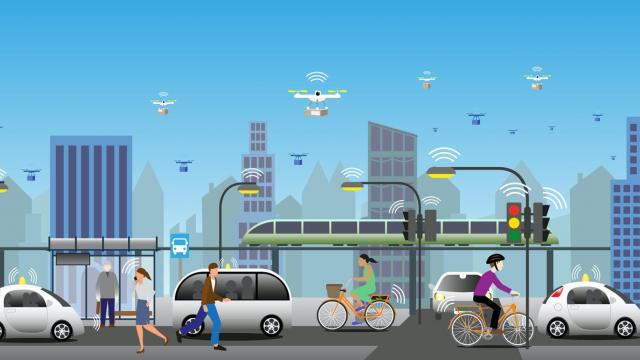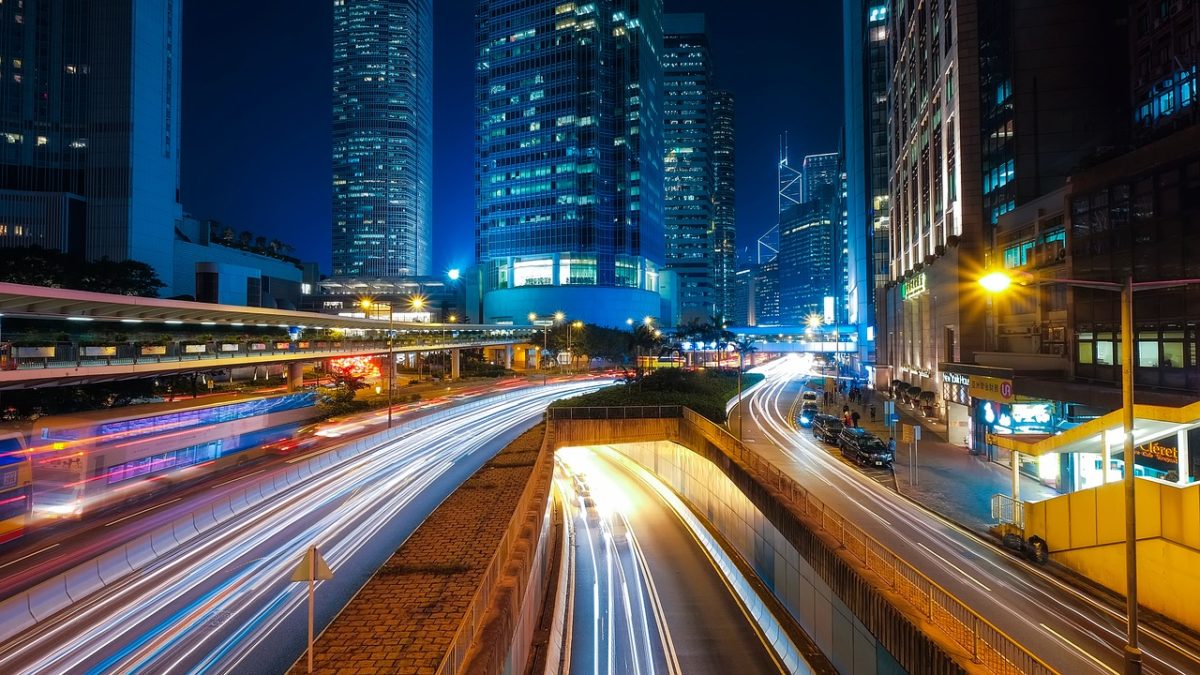
This is the thirteenth installment in a series about extending the Green New Deal to confront multiple global crises. Read Part I (Deconstructing environmental racism), II (Rural renewal), III (Upcycle the war machine), IV (GND manifestos), V (No oil bailouts), VI (No corporate ecocide), VII (Defund the police), VIII (Zero Covid approach: NZ), IX (Finnish equality lessons), X (Denmark stops drilling), XI (Costa Rica rewilding) and XII (Indigenous justice).
To stop and reverse the ongoing climate catastrophe we must rethink transit. Free public transport could diminish inequality and emission reductions, making it a powerful force for green and social transformation.
Transport as usual pushes climate meltdown
The way we move, literally, accelerates climate disasters. This was made clear in mid-2021, from German floods to Californian wildfires, from mudslides in Venezuela to Madagascar's drought. Transport causes a quarter of man-made CO2 emissions.
Figures are even higher in the high-polluting United States and EU. Unlike many economic sectors that are seeing a fall in CO2 output, transport emissions are rising.
We must re-imagine high-polluting aviation, shipping and personal vehicles – with a priority on ending our self-harming dependency on cars. Transportation also drives inequality. The average American spends more than 15 percent of their income on auto transit: the most impoverished rely on poorly invested public transport, while the richest drive expensive, high-polluting vehicles.
No more is this the case than with sport utility vehicles, for decades among the fastest growing car markets. If SUV drivers were a nation, their emissions alone would be the seventh largest on Earth.
Personal vehicles might be sold on digital billboards with dreams of empty roads and endless sunsets, yet the reality is very different for those stuck in their cars looking at these ads on their daily commute. In 2018, for instance, Berliners wasted an average of six days stuck in traffic jams.
In Los Angeles, the total area used by parked cars amounts to enough space to plant over 150 New York Central Parks.
As this series has discussed, transport air pollution impacts disadvantaged communities the worst, while oil consumption fuels endless wars and destroys indigenous lands.
Making public transport free is one trailblazing way to get people out of their cars and reduce climate altering emissions.
Free transport is arriving
Since 2020, no one in the tiny European nation of Luxembourg has to pay for public transport. Its government did this to encourage people to get out of their cars in a country that has massive congestion problems – and where half of greenhouse emissions come from transport. As elsewhere, the revenue from fares (€41 million) is only a small fraction of state support for public transport (€1 billion).
Which begs the question: what is the point of fares? On top of that, Luxembourg is investing money in public transport, including electrifying its entire bus fleet by 2030.
Little Luxembourg is hardly alone. More than one hundred cities worldwide are getting on board with fare free public transport (FFPT), including Hasselt, Belgium; Tallinn, Estonia, and France’s Grenoble.
U.S. cities are also going this way, including Kansas City, Mo; Chapel Hill, NC, and Olympia, Wash. Also, many cities are trialling FFPT, including five major German cities and Detroit.
One factor catalysing this movement is the pandemic, as Covid encourages car use at the worst climatic moment. A critique of implementing FFPT is that it just encourages more mobility, without reducing private vehicle use. This is why FFPT must go alongside reducing private ownership.
A simple answer to this is to close down roads. Paris did this, showing how a city can cut traffic in half simply by shutting down a motorway.
In addition, the plan is about integrating public transport. Buses and trains need to connect with trams; you must be able to carry your bike on the train. Anyone who has travelled overland through Europe has seen this first hand; for example, on Danish trains, where you can fit wheelchairs, prams and bikes throughout the carriage and pull down seats as necessary.
Another good example is Spain, where local or regional buses will take just about anything in compartments under the bus.
Rerouting the future
Glasgow, Scotland, hosts the COP-26 climate summit in early November. Here trade unions, environmentalists and transport campaigners have combined into the Get Glasgow Moving campaign.
The plan demands “better public transport to prevent poverty and isolation... That means making our buses, subway, trains and bikes work together as one network to provide seamless journeys for us all.”
According to the campaign, “We need properly planned bus routes, coordinated timetables and one simple ticket with an affordable daily price cap. We can only achieve this with proper governance and regulation; through public ownership and control.”
In June, Get Glasgow Moving and other allies made headway, using the climate summit as leverage to successfully pressure the Glasgow Council to agree to trial free public transport. Alongside issues of social inclusion and economic welfare, free transport could also be at the heart of a Scottish just transition to renewables, where the blooming Scottish wind industry could provide the electrical power and jobs to replace the north sea oil industry.
This power could propel electric buses, also made in Scotland, for instance by the company Alexander Dennis. Although Scotland has started laying the ground work for this transition, it still has a long way to go to ensure that these green jobs aren’t created overseas but right at home.
At climate summits, electric cars are touted as a climate solution, yet they are highly problematic. They may not emit greenhouse gases on the road, but they create even more emissions to produce than fossil fuel-powered cars; in addition, fossil fuel is often burned to generate the electricity to top up the batteries.
This brings us to the next problem: the lithium and raw materials needed to make the cars is finite, and extracting it from the ground devastates the environment, especially when left to multinational companies.
Electric public transport requires lithium batteries, rare earth metals, and electrical energy. But what the green transformation needs is a shift in our mindset. There is a finite amount of resources, and these need to be shared.
Universally free and good quality transportation is a means to do this. Electric cars can be shared when they are most needed or used by people with special needs. But overall, electric cars pose many of the same severe problems as fossil fuel-powered ones: they injure or kill whomever they hit, require massive road infrastructure and space to park, cause traffic jams, and turn social streets into unsocial roads.
To paraphrase the former mayor of Bogotá, Gustavo Petro: “A developed future is not a place where the poor have cars. It's where the rich use public transport.”
Cars are inherently individualised, profit-driven and selfish. Instead, universalism needs to be at the heart of the green transformation to solve the dual crises of inequality and climate change.
Read Part I (Deconstructing environmental racism), II (Rural renewal), III (Upcycle the war machine), IV (GND manifestos), V (No oil bailouts), VI (No corporate ecocide), VII (Defund the police), VIII (Zero Covid approach: NZ), IX (Finnish equality lessons), X (Denmark stops drilling), XI (Costa Rica rewilding) and XII (Indigenous justice).












